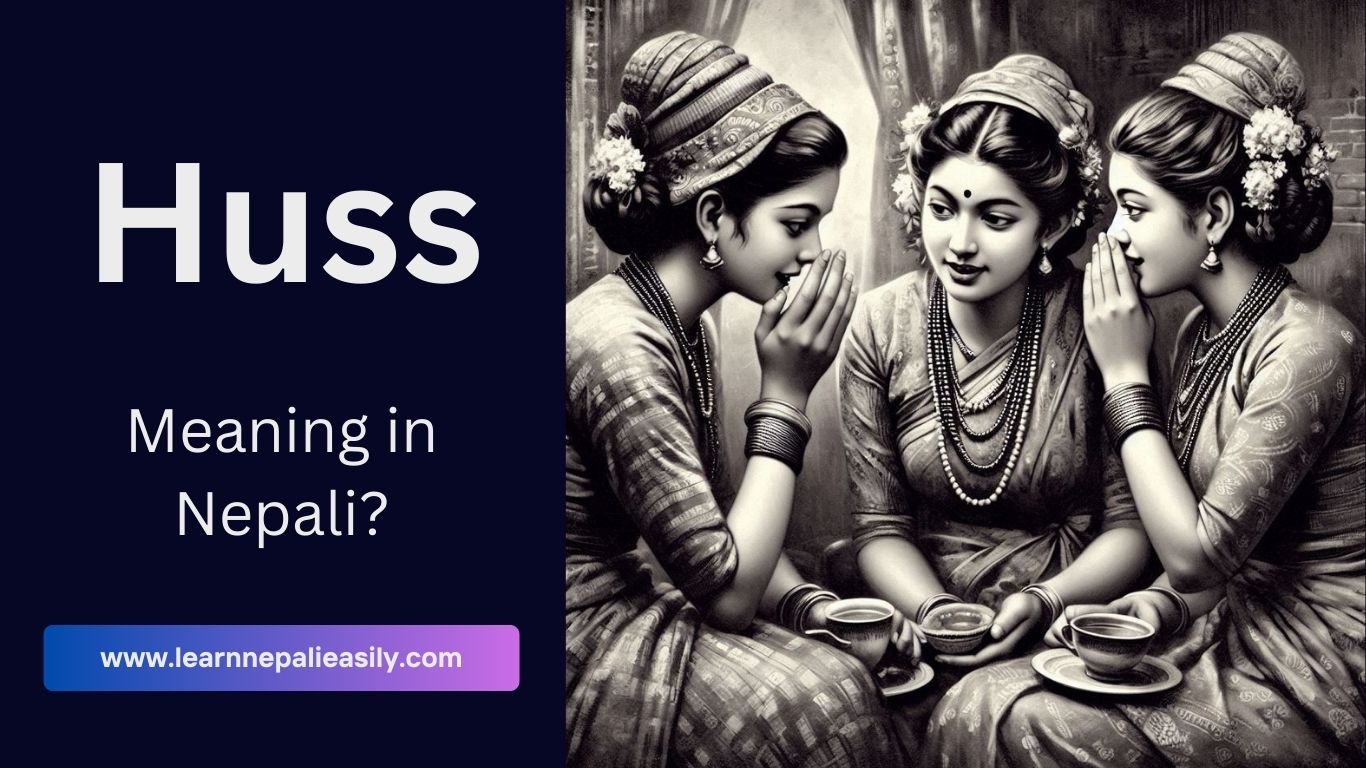The word “Huss/hush” in Nepali is a term commonly used to acknowledge, confirm, or agree with someone. It is a colloquial expression similar to saying “Yes”, “Okay” or “Understood” in English. While it may seem simple, it carries an important role in everyday conversations, adding a friendly and casual tone to interactions.
The word is typically used in friendly settings, often when someone is agreeing with a statement or acknowledging instructions given by another person. It’s especially common among friends, family, and peers in an informal setting.
In different contexts, “Huss/hush” can take on slightly different meanings:
- Confirmation or Acknowledgement – “Huss” can signify that you have understood or acknowledged what someone has said.
- Agreement – It’s also used to agree with someone in a relaxed way.
- Assurance – Sometimes, “Huss” is used to assure someone that you will do what they requested.
Examples of “Huss” Usage in Nepali:
Here are some example sentences to understand the different ways “Huss” can be used:
Example 1: Acknowledgment
English: Are you coming to the party tomorrow?
Nepali: Tapai bholi party ma aunu hunchha? (तपाई भोलि पार्टीमा आउनुहुन्छ?)
Response in English: Yes, I will come.
Nepali: Huss, ma aauxu. (हस, म आउछु।)
Example 2: Agreement
English: Can you bring the books tomorrow?
Nepali: Tapai bholi kitaabharu lyai dinu saknu hunchha? (तपाई भोलि किताबहरू ल्याइदिनु सक्नुहुन्छ?)
Response in English: Sure, I’ll bring them.
Nepali: Huss, ma lyai dinchu. (हस, म ल्याइदिन्छु।)
Example 3: Assurance
English: Please complete the work by today.
Nepali: Kripaya aja samma kaam sakai dinu hola. (कृपया आजसम्म काम सकाइदिनु होला।)
Response in English: Yes, I’ll finish it today.
Nepali: Huss, ma aja sakai dinchu. (हस, म आज सकाइदिन्छु।)
Example 4: Polite Response
English: Can I call you later?
Nepali: Ma tapai lai pachi phone garna sakchhu? (म तपाईलाई पछि फोन गर्न सक्छु?)
Response in English: Yes, that’s fine.
Nepali: Huss, huncha. (हस, हुन्छ।)
Example 5: Informal Confirmation
English: Don’t forget to bring the charger.
Nepali: Charger lyaidina nabirinus hai. (चार्जर ल्याइदिन नबिर्सिनुस् है।)
Response in English: Okay, I won’t forget.
Nepali: Huss, birsina. (हस, बिर्सिदिन।)
How to Use “Huss” in Nepali Conversation
In Casual Settings: “Huss”, “Huncha” or “la-la” is best suited for conversations with friends and family or in other informal interactions. For instance, if a friend reminds you about something, you can simply respond with “huncha” to confirm your understanding.
With Colleagues or Peers: In a professional setting, “Huss” may be used in interactions with close colleagues but should be used cautiously to maintain respect and professionalism.
In Text Messages and Chats: In digital communication, such as texting or social media chats, “Huss” is widely used. It keeps the conversation light and friendly while showing that you’ve acknowledged or agreed with what the other person said.
For Polite and Soft Responses: Unlike a simple “Yes” or “No,” “Huss” adds a tone of politeness and gentleness. It’s often used as a soft response, making it a respectful choice.
Conclusion
“Huss” is a versatile and commonly used word in Nepali, perfect for casual conversations to confirm, agree, or acknowledge what someone has said. It’s one of those words that adds warmth to your speech, reflecting the friendly and polite nature of Nepali interactions. Whether you’re a native speaker or learning Nepali, understanding the use of “Huss” can help you connect with people more comfortably and engage in natural, relaxed conversations.

